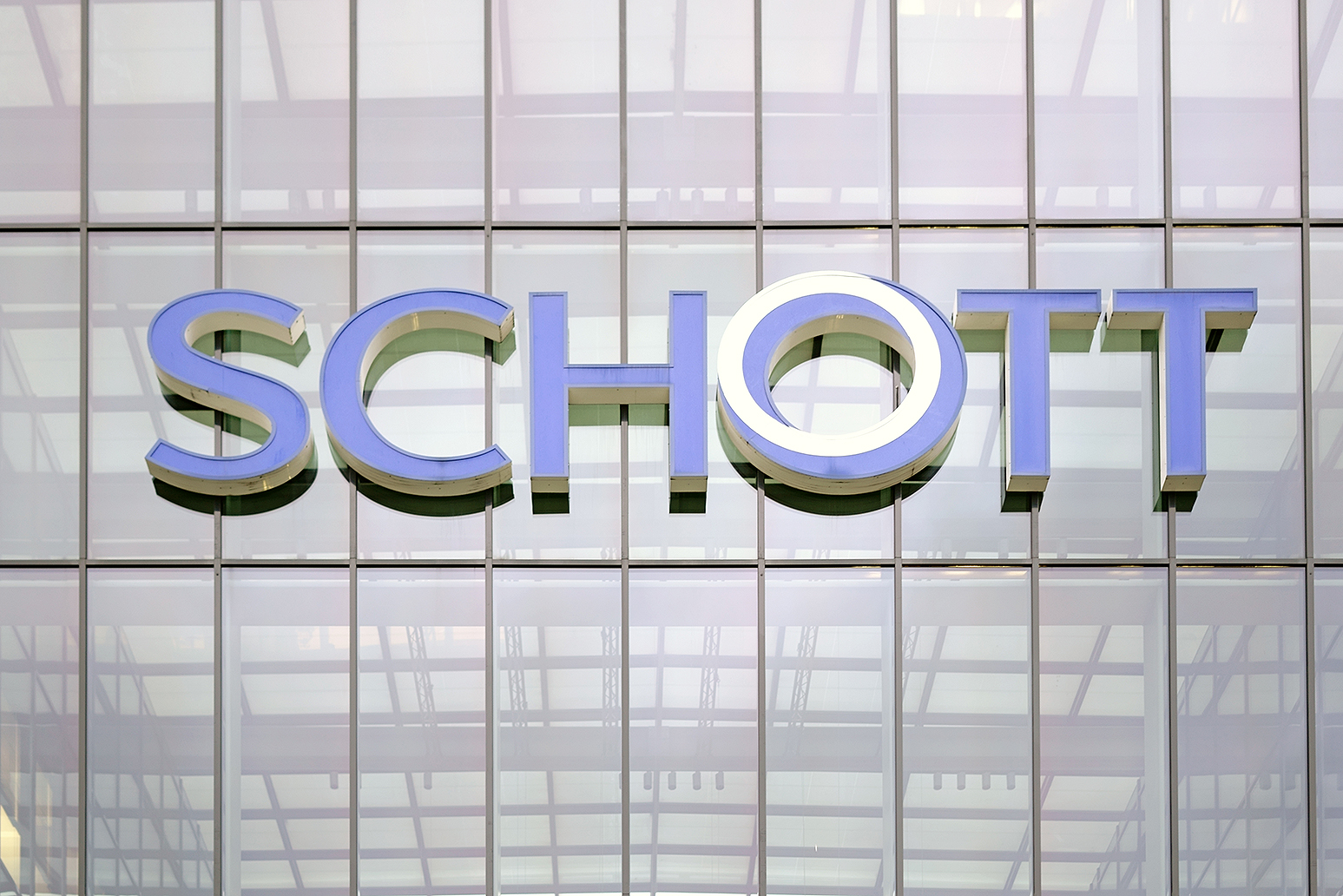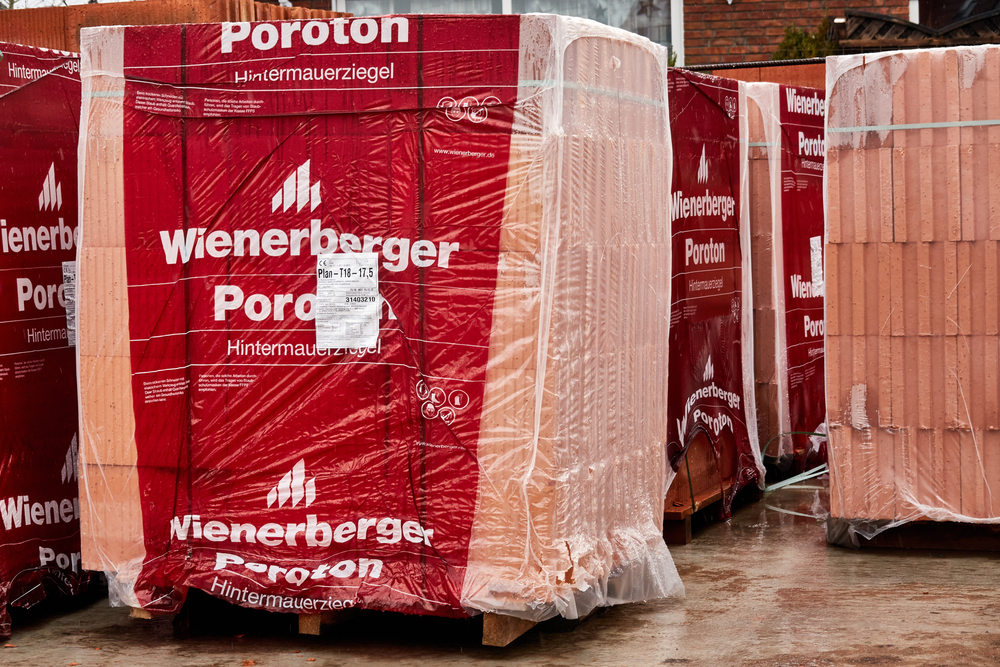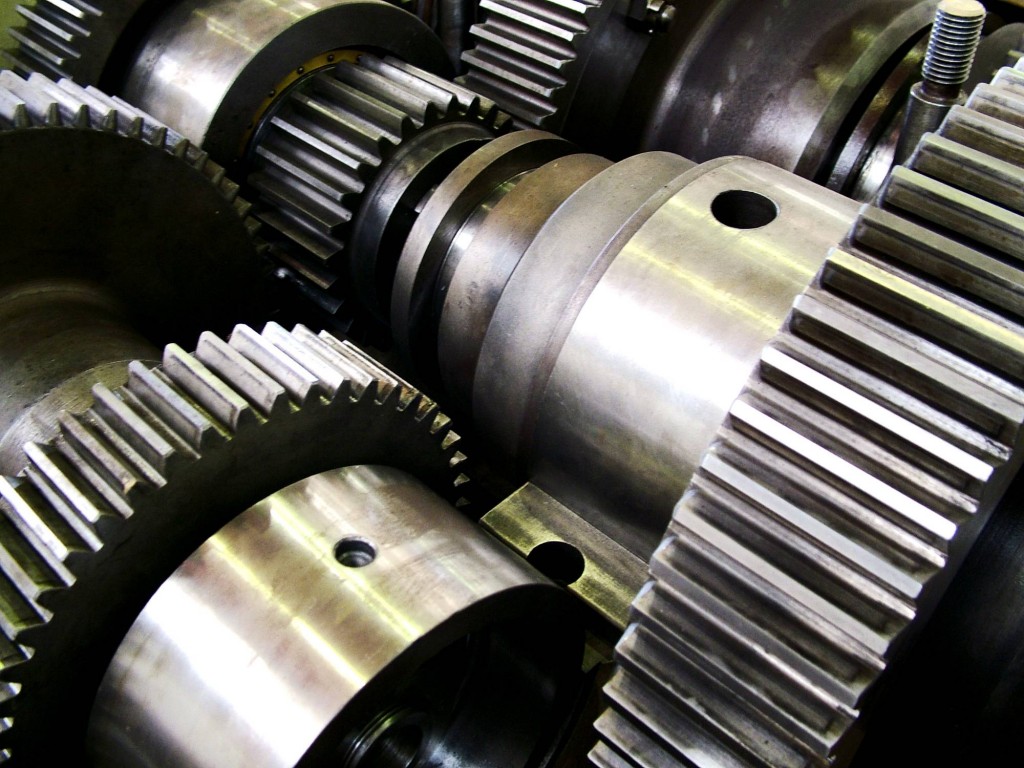Manufacturing Sector Sees Capacity Expansions in March

The glass facade of Schott AG’s headquarters in Mainz, Germany. It has announced a HUF 28 bln expansion at its Hungarian factory.
Photo by Bastian Kienitz / Shutterstock.com
The Hungarian manufacturing sector has seen its fair share of recent investments in capacity expansions. These activities indicate a healthy long-term outlook. However, EU sanctions against Russia following its invasion of Ukraine have started hurting the European economy already, and the severity of their effects are, as yet, hard to predict.
The country’s seasonally-adjusted Purchasing Managers Index rose to 53.2 points in February, up from 50.9 in January, according to data released on March 1, just a few days after the Russian invasion in Ukraine started (and before the effects of sanctions against Russia started trickling into the European Union’s economy).
If the PMI indicator, compiled and published by the Hungarian Association of Logistics, Purchasing and Inventory Management (Halpim), is above 50, it signals expansion in the manufacturing sector. The indicator has been showing recuperation after contractions during the many waves of the pandemic and the disruptions to global supply chains.
The PMI is made up of a handful of sub-indices. New orders climbed in February compared to January and remained over the 50-point threshold. So did the production volume index, which showed expansion for the 12th consecutive month in February.
While the employment index also increased, recording growth for the fifth consecutive month, and the gauge of purchased inventories grew for the 10th successive month, longer delivery times were experienced than in January.
Capacity Expansions
Although the effects of the sanctions on the economy will surely begin to crystalize over time, March has seen some intriguing capacity expansions in the country.
K9-Sport, a Hungarian dog harness maker, inaugurated a HUF 270 million capacity expansion, supported by a HUF 135 mln government grant, at its base in Tiszafüred (148 km east of Budapest by road) on March 18. The investment in the factory will add 70 new jobs, raising the headcount to more than 500. Public records show that exports accounted for more than 95% of K9-Sport’s 2020 turnover.
Hungarian-owned Somapak, a maker of food and tobacco packaging machinery, also announced on March 18 that it would be investing HUF 245 mln in capacity expansion, supported by HUF 172 mln in European Union and state grants. Once finished in November, Somapak will have added a production hall and warehouse, bought a CNC machine center and a five-tonne capacity running crane, and made IT upgrades at its base in Pécs (217 km south of the capital).
Italian-owned Mapei Kft., a construction materials maker, is investing HUF 8 billion in a capacity expansion of its Sóskút plant, just 26 km southeast of central Budapest. Under the investment, Mapei will add an annual seven tonnes of mortar production at the plant, boost powder-based plaster product output to 225,000 tonnes a year, and add 10,000 sqm of additional warehouse space. Due to be completed at the end of 2025, the company targets shortening its supply chains via the expansion.
Caola, a Hungarian cosmetics and cleaning products maker, laid the cornerstone of a HUF 3.8 bln antiseptic factory in Martonvásár (32 km from the capital’s center) on March 11, supported by a HUF 2 bln grant from a fund earmarked to boost the country’s healthcare production self-sufficiency. Construction should wrap up by the end of this year, and the plant will start operating with a staff of 21.
Continest Technologies, a Hungarian maker of foldable, multi-purpose mobile containers, inaugurated a HUF 541 mln capacity expansion, supported by a grant of HUF 433 mln, at its base in Székesfehérvár (65 km southwest), also on March 11. The additional 1,000 sqm production area, which raises the total space to almost 5,500 sqm, will create 26 new jobs by the end of the year. Some 90% of Contitest’s turnover comes from global exports.
Schott Hungary, the local subsidiary of the German maker of specialty glass products, has announced that it is planning a very significant HUF 28 bln expansion, supported by a HUF 3.3 bln government grant, at its Hungarian base in Lukácsháza (232 km west of Budapest). Adding prefillable sterile syringe production to its Hungarian base, a function that had previously been conducted exclusively in Schott’s Swiss factory will create 120 jobs in the country.
Scintilla Mérnöki Iroda, a privately-owned Hungarian cable confectioning and electronic assembly firm, has just completed an almost HUF 1.64 bln capacity expansion project at its base in Jászberény (96 km east), supported by a HUF 800 mln European Union and government grant. Winding up the two-year-long project, Scintilla says it has improved its infrastructure and expanded its production with modern machinery, production lines, and industry 4.0 technologies.
Hungarian metalworking business Buttner will invest HUF 682 mln in purchasing new equipment, expanding a production unit, and installing heat pump systems at its base in Nagyatád (229 km southwest of the capital), with 70% of the investment costs being covered by a European Union grant. The investment is scheduled to be completed by summer 2023.
U.S.-based medical tech firm Becton Dickinson plans to invest a particularly noteworthy HUF 70 bln into doubling capacity at its base in Környe (69 km west), supported by a government grant of HUF 4.4 bln. After installing three new production lines by the end of 2024, the company expects to create 300 new jobs once production starts.
Uncertain Future
Although this month has certainly been busy with manufacturing developments, the Russo-Ukrainian war and its impact on the region’s economic environment raise questions. On March 15, the European Union revealed the fourth round of its increasingly punitive sanctions against Russia for its invasion.
The wild swings in natural gas prices caused by the conflict have already been causing havoc across many industries, one of the latest victims being fertilizer production (see our story on page 19). Audia, Mercedes and Suzuki have either altered shift patterns in their Hungarian factories in response to missing supplies from Ukraine or stopped shipping vehicles to Russia.
This most recent package banned the export of luxury cars from the EU to Russia and applies what the European Commission calls, “A far-reaching ban on new investment across the Russian energy sector, with limited exceptions for civil nuclear energy and the transport of certain energy products back to the EU.”
Russian exports of raw minerals, including fossil fuels and palladium, essential for the auto industry, remain possible for now, but no one knows with any certainty for how much longer.
This article was first published in the Budapest Business Journal print issue of March 25, 2022.
SUPPORT THE BUDAPEST BUSINESS JOURNAL
Producing journalism that is worthy of the name is a costly business. For 27 years, the publishers, editors and reporters of the Budapest Business Journal have striven to bring you business news that works, information that you can trust, that is factual, accurate and presented without fear or favor.
Newspaper organizations across the globe have struggled to find a business model that allows them to continue to excel, without compromising their ability to perform. Most recently, some have experimented with the idea of involving their most important stakeholders, their readers.
We would like to offer that same opportunity to our readers. We would like to invite you to help us deliver the quality business journalism you require. Hit our Support the BBJ button and you can choose the how much and how often you send us your contributions.







